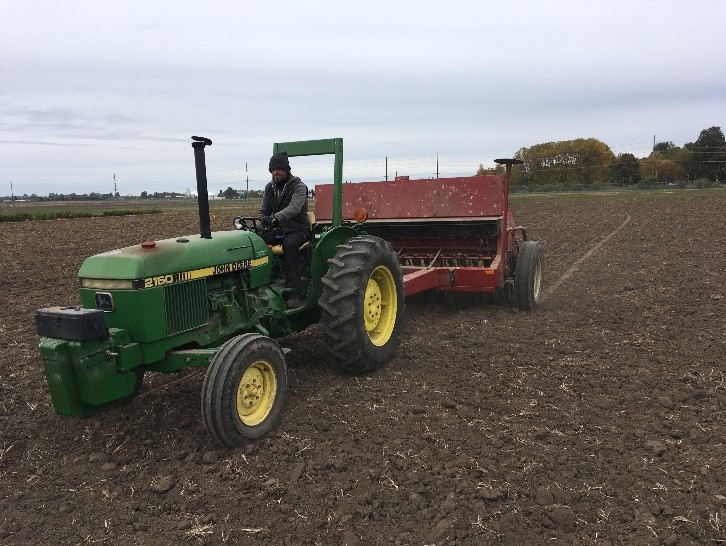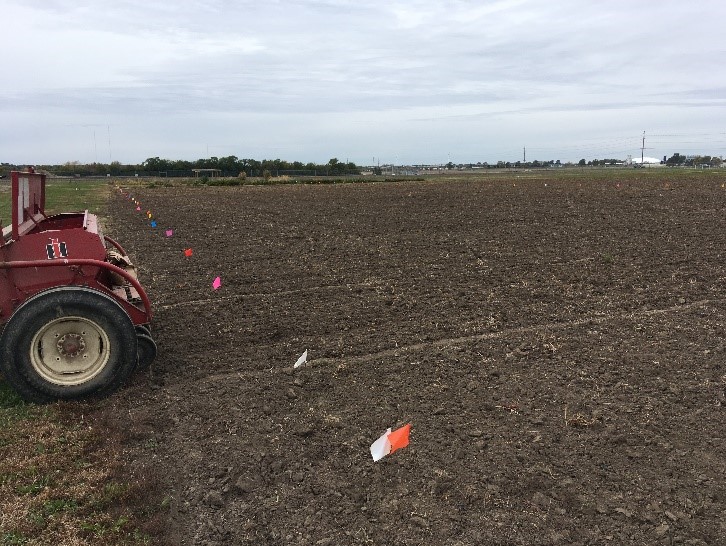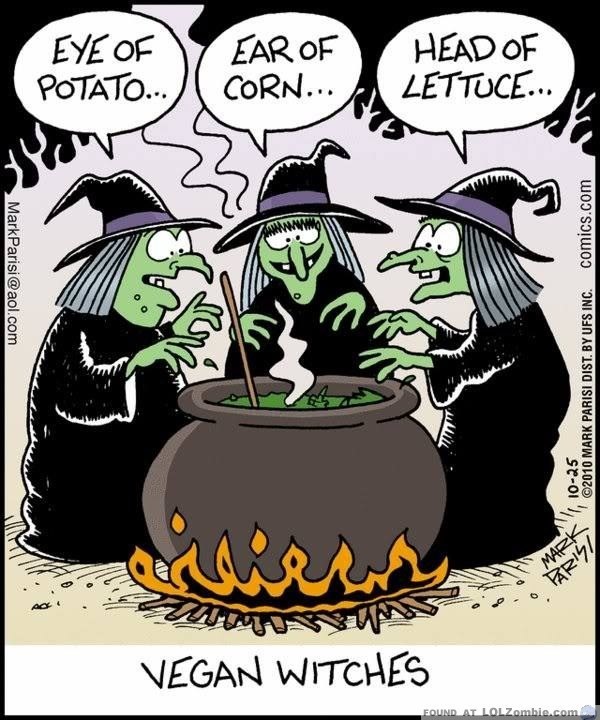Address any questions or comments regarding this newsletter to the individual authors listed after each article or to its editors, Nathan Johanning, 618-939-3434, njohann@illinois.edu or Bronwyn Aly 618-695-6060, baly@illinois.edu. The Illinois Fruit and Vegetable News is available on the web at: http://ipm.illinois.edu/ifvn/. To receive or be removed from email notification of new postings of this newsletter, contact Nathan Johanning or Bronwyn Aly at the phone numbers or email addresses above.
In This Issue:
Upcoming Programs (listings for beginning and established growers)
Regional Reports (east central Illinois, St. Louis Metro East, southern Illinois, Dixon Springs)
Upcoming Programs
See the University of Illinois Extension Local Food Systems and Small Farms Team’s website at:
http://web.extension.illinois.edu/smallfarm/ and the calendar of events at http://web.extension.illinois.edu/units/calendar.cfm?UnitID=629.
- Twilight Field Day at Huyck Farms, Tuesday October 29, 2019, 5 p.m. 3005 Cairo Road Paducah, KY 42001. This program will cover the basics of cole crop production and a tour of a colored cauliflower variety demonstration trial. For more information contact Kathryn Wimberley at the McCracken Co. Extension Service at 270-554-9520.
- Illinois Farmers Market Association 2019-2020 Winter Webinars. If you are looking for great webinars that have a market focus check out this series from ILFMA and University of Illinois Extension. They are hosting one per month, between now and March 2020. Registration for the webinars listed below can be found here: Check it out! For more information, contact Laurie George ljgeorge@illinois.edu
- November 11, 2019 “Applying the Expanded Cottage Food Act to Your Market:
- December 16, 2019 “Pollination Celebration: Opportunity to Connect our Food System, Environment and Our Community”
- January 13, 2020 “Food Safety Modernization Act (FSMA) Produce Rule for Farmer’s Markets: Is It Required”
- February 10, 2020 “Inside Look at Successful Chef Demos at the Market
- March 16, 2020 “The Future of Farmers Markets – Building Collaborative Practices”
- 2020 Illinois Specialty Crops Conference, January 8-10, 2020, Springfield, IL. Save the date!!!! https://www.specialtygrowers.org/2020-save-the-date . More information to follow later in the year but mark your calendars now and plan on attending the pre-conference workshops, conference programming, trade show, and annual association meetings!
- 2020 Southwest Illinois Commercial Tree Fruit School, Tuesday, February 4, 2020 at the Knights of Columbus Hall just south of Hardin, IL. Save the date and more information to follow!
- 2020 Southern Illinois Fruit and Vegetable School, Wednesday, February 5, 2020, Mt Vernon Doubletree Inn. This program includes separate tracks for small fruit, tree fruit and vegetable production. Save the date and more information to follow!
Regional Reports
From east central Illinois… Most of the produce farms have ended for the season. However the few remaining are harvesting hardy greens, radishes and other root crops. Farmers have been working on getting beds cleaned, irrigation systems winterized or stored for the season and a few have planted cover crops. It was a challenging year with the wet spring, a mini drought in part of this region and then there was plant growth regulator injury on several farms.
Doug Gucker (217-877-6042; dgucker@illinois.edu)
From the St. Louis Metro East… To date, fall weather has been very mild. The region finally received much needed rain, which helped in harvesting of horseradish and sweet potatoes, and bring on some fall color. Horseradish harvest is ongoing and sweet potato harvest is pretty well finished ahead of expected cold weather. Pumpkin sales are still strong and it looks like the cold weather may hold off until Halloween. It has been a great fall for ongoing cutting of greens. Still some green beans being harvested. Garlic is being planted for harvest next year.
A slight dip below freezing is in the forecast for next week, which hopefully will not impact those still u-picking apples like GoldRush, Enterprise, Braeburn, CandyCrisp and Granny Smith. It all depends on how cold it gets and for how long. A general rule of thumb is apple fruit will withstand up to 4 hours at 28°F before serious injury occurs. Below 28°F, injury is difficult to predict, but assume the risk of fatal injury to increase as temperatures drop and/or exposure time increases. Fruit drop in temperatures below freezing is another effect in some apple cultivars. This can happen after several mild frosts in the 28°F range or after just one night dropping around 24°F. So in general, avoid handling hanging apples in freezing temperatures until temperatures are back above freezing and fruit has had sufficient time to thaw completely. Fruits that have suffered freeze injury will have a shortened shelf life and may begin to exhibit browning within a day or so after the freeze event. Though not suited to long storage or time in a bowl on the counter, freeze damaged apple fruit are suitable for juice.
Elizabeth Wahle (618-344-4230; wahle@illinois.edu)
From southern Illinois... Fall is here in southern Illinois! We finally have cooled down to more seasonable temperatures. Highs have ranged from the upper 50s to around 70 in the last week or so and most areas did get some frost on the night of Friday October 11. A front had passed that day and the sky had cleared, winds dropped off, and temperatures dropped. I was at the family farm in Monroe County, picking pumpkins. By 9:30 pm there was some frost on the metal roof and even my tractor seat cushion, however, a little later some of the frost was starting to melt. I went out that night and picked a few of the most sensitive pumpkins like whites and some of the tender winter squash. It was gettin close to full moon and very bright. The next morning I had 37˚ on the thermometer. It pretty well wiped out all of the pumpkin leaves, but with the wind being still, you could see it got even colder in low areas with more severe damage. The temperatures in-field must have been very close to the critical point of damage vs no damage on fruit. You could observe “micro-climate” damage differences based on elevation in the field, and even where there was a leaf canopy or not. Where leaves still covered fruit even in low areas any damage was minimal with the leaves helping to trap some of the warmth from the soil, but where leaves had been take down by harvest or some powdery mildew the frost burn was more significant. As you head south down to Murphysboro, there was some frost but not as severe and even less injury, if any, occurred. Overall, whites, and some of the softer skinned winter squash varieties were injured quite a bit, some Jack O’Lanterns had slight frost burn, but most were not injured.
We still have been fairly dry, but have had some rain. We had 1.2” in Murphysboro on Sunday (10/20) into Monday morning. However, the soil has been so dry that even after a day or two the ground is workable and fall field clean up can continue. In some cases some areas needed that moisture to allow the soil to crumble and work well. The weather forecast has some rain chances Saturday and then more fall like conditions. Later next week temperatures are predicted to get colder possibly below freezing. Think about any potential winterizing you might need to do around the farm as that might be just around the corner.


Cover crop planting for research trial on comparing production systems in tomatoes and bell peppers in plots at the University of Illinois Fruit Farm near campus in Urbana, IL. Photos: N. Johanning
We are getting some new research projects underway for the next growing season! We planted a cereal rye cover crop in plots at the University of Illinois Fruit Farm near campus in Urbana, IL on Thursday, October 24, 2019. This is a part of a Specialty Crop Block Grant that I received to evaluate different production systems for tomatoes and bell peppers. The trial will compare bareground/conventional tillage, plasticulture, and no-till production systems with and without the use of a cereal rye cover crop. We will conduct this trial two years and at two sites, one being on campus (dark-colored, central IL soils) and the other site near Waterloo (light-colored southern IL soils). Weather permitting the cover crops at the Waterloo site will be planted next week. Stay tuned as I keep you updated on the progress over the next two years! We will also have multiple field days at the sites and an opportunity for on farm grower trials. I am personally very excited about the opportunity to lead this project and looking forward to learning more about how growers can best utilize these conservation practices!
On a different note, this will be the last time “officially” that I am writing to everyone as a Local Food Systems & Small Farms Educator, in Murphysboro. As of November 1, I will take on a new role as a Commercial Agriculture Educator for University of Illinois Extension serving Madison, Monroe, & St. Clair counties with my office in the Monroe County office in Waterloo. This position will be more focused on grain crop production; however, I will still be working on multiple specialty crop projects including pumpkins of course and some other cover crop outreach and research. I currently do quite a bit of grain crop research and education through the Ewing Demonstration Center, so although my title and location will change, what I do may very well be very similar. I still intend to contribute to the newsletter although I may eventually hand over at least a part of my editor duties. I want to personally thank all of the great growers here in Jackson and the surrounding counties that I have worked with and learned so much from. Although a few miles further away, I still want to help anyone near or far as best I can. Personally, it will be very nice for our family to be closer to our farm and family. I have lived in the Carbondale/Murphysboro area for over 17 years now so the thought of leaving many friends and colleagues was not easy, but I am excited about the opportunities. While not immediately, there are plans to re-open and fill my position in Murphysboro early next year. Thank you again for all the support from growers locally and around the state. I look forward to continuing my research and outreach in this new capacity!
Nathan Johanning (618-939-3434; njohann@illinois.edu)
From Dixon Springs Ag Center…We are well into year one (first of two) activities on the Specialty Crop Block Grant, Utilizing High Tunnels to Maximize Winter Vegetable Production at DSAC. All carrots have now been harvested from the August 8th seeded plots, harvest continues in the lettuce, kale, and spinach plots transplanted on September 5-6th as these are harvested as cut and come again, or with the kale, cutting off the mature leaves up the stalk, so we anticipate continuing harvest over the next few months. The same will go for the October and November (yet to be planted) plots, but harvest has yet to begin in those areas. The September seeded carrots are starting to form a bit of orange root but they still have some time to go before harvest can begin. The October seeded carrots are up and making their second and third leaves. No row cover has been needed as of yet with the lowest nightly temps so far being around the 37-38 degree F range.
We have removed most of the tomato and cucumber plants from the hydroponic tunnel as spider mite numbers have really jumped up and production has fallen off. The strawberries in the vertical stacks look really good and are enjoying the cooler weather and providing a noticeable jump in production (which is to be expected). There are still a few tomatoes continuing to ripen in the raised ground bed tunnel but they have slowed down tremendously.
I saw a Facebook video post from a farm last week as they were removing the wooden stakes, tomato twine, and plants from their plasticulture tomato field. This was a reminder to be thinking about good end of season sanitation practices including but not limited to removal of plant debris to reduce the potential for disease carryover, sanitizing reuseable items like harvest containers, tomato/pepper stakes or any harvest tools, and removal of used plastic mulch from the field.
Bronwyn Aly (618-382-2662; baly@illinois.edu)
Less Seriously
https://lolzombie.com/11432/vegan-witches/

University of Illinois Extension Specialists in Fruit and Vegetable Production & Pest Management
Extension Educators – Local Food Systems and Small Farms |
||
Bronwyn Aly, Gallatin, Hamilton, Hardin, Pope, Saline, and White counties |
618-382-2662 |
|
Katie Bell, Franklin, Jackson, Perry, Randolph, & Williamson counties |
618-687-1727 |
|
Sarah Farley, Lake & McHenry counties |
847-223-8627 |
|
Nick Frillman, Woodford, Livingston, & McLean counties |
309-663-8306 |
|
Laurie George, Bond, Clinton, Jefferson, Marion, & Washington counties |
618-548-1446 |
|
Zachary Grant, Cook County | 708-679-6889 | |
Doug Gucker, DeWitt, Macon, and Piatt counties |
217-877-6042 |
|
Erin Harper, Champaign, Ford, Iroquois, and Vermillion counties |
217-333-7672 |
|
Grace Margherio, Jackie Joyner-Kersee Center, St. Clair County |
217-244-3547 |
|
Grant McCarty, Jo Daviess, Stephenson, and Winnebago counties |
815-235-4125 |
|
Katie Parker, Adams, Brown, Hancock, Pike and Schuyler counties |
217-223-8380 |
|
Kathryn Pereira, Cook County |
773-233-2900 |
|
James Theuri, Grundy, Kankakee, and Will counties |
815-933-8337 |
|
Extension Educators – Horticulture |
||
Chris Enroth, Henderson, Knox, McDonough, and Warren counties |
309-837-3939 |
|
Richard Hentschel, DuPage, Kane, and Kendall counties |
630-584-6166 |
|
Andrew Holsinger, Christian, Jersey, Macoupin, & Montgomery counties |
217-532-3941 |
|
Extension Educators - Commercial Agriculture |
||
Elizabeth Wahle, Fruit & Vegetable Production |
618-344-4230 |
|
Nathan Johanning, Madison, Monroe & St. Clair counties |
618-939-3434 |
|
Campus-based Extension Specialists |
||
Kacie Athey, Entomology |
217-244-9916 |
|
Mohammad Babadoost, Plant Pathology |
217-333-1523 |
|